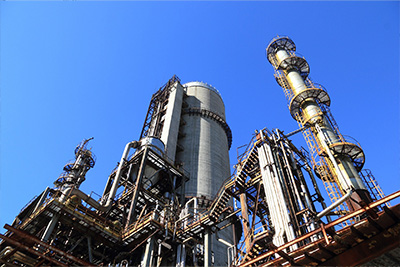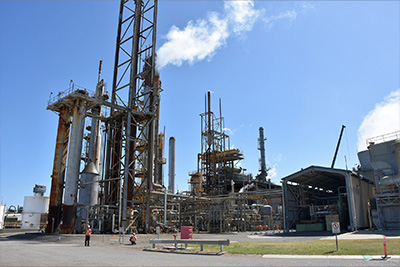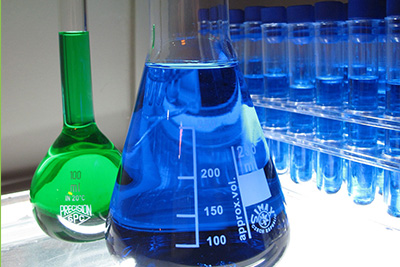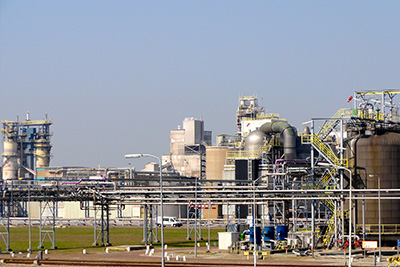-
![Role of Stearoyl B···]() 2025-01-01 Role of Stearoyl Benzoyl Methane (SB···
2025-01-01 Role of Stearoyl Benzoyl Methane (SB···Stearoyl Benzoyl Methane (SBM) serves as a crucial additive in polymer blends, enhancing their overall performance. This study explores the specific functions of SBM, including improving thermal stability, increasing flexibility, and boosting compatibility between different polymer components. By integrating SBM into polymer mixtures, the material's mechanical properties are significantly optimized, leading to broader applications in industries such as automotive and packaging. The research provides valuable insights into the effective utilization of SBM to develop advanced polymer materials with enhanced characteristics.
read more > -
![Applications of St···]() 2025-01-01 Applications of Stearoyl Benzoyl Met···
2025-01-01 Applications of Stearoyl Benzoyl Met···Stearoyl benzoyl methane (SBM) is widely utilized in the rubber and plastics industries for its exceptional thermal stability and compatibility with various polymers. In rubber processing, SBM acts as an efficient heat stabilizer, preventing degradation during vulcanization. It also enhances the overall performance of rubber products by improving their mechanical strength and elasticity. For plastics, SBM functions as both a heat stabilizer and a lubricant, ensuring uniform melting and processing. Its incorporation reduces friction, thereby minimizing wear on processing equipment. Additionally, SBM contributes to better color retention and extended product lifespan. Overall, SBM plays a crucial role in enhancing the efficiency and quality of rubber and plastic manufacturing processes.
read more > -
![Exploring Stearoyl···]() 2025-01-01 Exploring Stearoyl Benzoyl Methane (···
2025-01-01 Exploring Stearoyl Benzoyl Methane (···Stearoyl benzoyl methane (SBM) is investigated as an additive to enhance the heat stability of polymers. This compound demonstrates significant potential in preventing thermal degradation, thereby extending the lifespan and performance of polymer materials under high temperatures. The study reveals that incorporating SBM into polymer matrices results in superior thermal resistance compared to untreated samples. Additionally, SBM exhibits compatibility with various polymer types, making it a versatile solution for industrial applications. Overall, the research highlights SBM's effectiveness in addressing thermal stability issues, offering a promising approach for polymer manufacturers aiming to improve product durability and quality.
read more > -
![The Use of Stearoy···]() 2025-01-01 The Use of Stearoyl Benzoyl Methane ···
2025-01-01 The Use of Stearoyl Benzoyl Methane ···Stearoyl benzoyl methane (SBM) is explored as a performance enhancer in polymeric materials. This compound significantly improves thermal stability and mechanical properties, making it a valuable additive for various polymer applications. SBM effectively reduces degradation during processing and enhances the overall durability and lifespan of polymer products. Its unique chemical structure contributes to improved compatibility with different polymer matrices, leading to enhanced mechanical strength and heat resistance. Thus, SBM represents a promising solution for advancing the performance of polymeric materials in numerous industrial sectors.
read more > -
![Stearoyl Benzoyl M···]() 2025-01-01 Stearoyl Benzoyl Methane (SBM) in Po···
2025-01-01 Stearoyl Benzoyl Methane (SBM) in Po···Stearoyl Benzoyl Methane (SBM) is a compound increasingly utilized in polymer blends, offering notable advantages such as improved thermal stability, enhanced compatibility between immiscible polymers, and increased mechanical properties. These benefits make SBM an attractive additive for various applications, including automotive components, packaging materials, and consumer goods. The integration of SBM into polymer formulations not only extends the lifetime of products but also optimizes processing conditions during manufacturing, thereby reducing costs and environmental impact.
read more > -
![Applications of Bu···]() 2025-01-01 Applications of Butyltin Mercaptide ···
2025-01-01 Applications of Butyltin Mercaptide ···Butyltin mercaptides are widely used in the production of chlorinated polyvinyl chloride (CPVC) pipes to enhance their chemical resistance. These compounds act as stabilizers, effectively preventing degradation and maintaining structural integrity when exposed to aggressive chemicals. The incorporation of butyltin mercaptides results in CPVC pipes that demonstrate superior resistance to acids, bases, and various solvents, making them ideal for use in industrial and chemical processing environments where conventional materials would quickly fail. This application highlights the significant role of butyltin mercaptides in extending the service life and broadening the applicability of CPVC pipes.
read more > -
![Butyltin Mercaptid···]() 2025-01-01 Butyltin Mercaptide as a Stabilizer ···
2025-01-01 Butyltin Mercaptide as a Stabilizer ···Butyltin mercaptides serve as effective stabilizers in chlorinated polyvinyl chloride (CPVC) pipes, enhancing their thermal stability and prolonging service life. These compounds work by capturing free radicals and neutralizing acidic by-products during processing and use. The mercaptide groups react with hydrochloric acid, preventing degradation and discoloration. This mechanism ensures that CPVC pipes maintain their mechanical properties and color consistency over time, making them suitable for various applications including potable water systems and chemical transport.
read more > -
![The Role of Butylt···]() 2025-01-01 The Role of Butyltin Mercaptide in t···
2025-01-01 The Role of Butyltin Mercaptide in t···Butyltin mercaptide plays a crucial role in enhancing the durability of CPVC pipes. By acting as an effective stabilizer, it prevents degradation caused by heat and light, thus extending the service life of the pipes. Additionally, it improves the mechanical properties such as impact strength and tensile strength, making the pipes more resistant to cracking and breaking under stress. This chemical additive ensures better performance and reliability in various applications, particularly in plumbing and industrial systems where long-term stability is essential.
read more > -
![Innovative Applica···]() 2025-01-01 Innovative Applications of Butyltin ···
2025-01-01 Innovative Applications of Butyltin ···Butyltin mercaptides have shown promising applications in the manufacturing of chlorinated polyvinyl chloride (CPVC) pipes, enhancing their thermal stability and mechanical properties. These compounds act as effective stabilizers, preventing degradation during processing and prolonging the service life of the pipes. Their introduction has led to improvements in the overall quality and durability of CPVC pipes, making them more resistant to heat and pressure. This advancement could significantly impact various industries relying on CPVC pipes for infrastructure and industrial applications.
read more >








